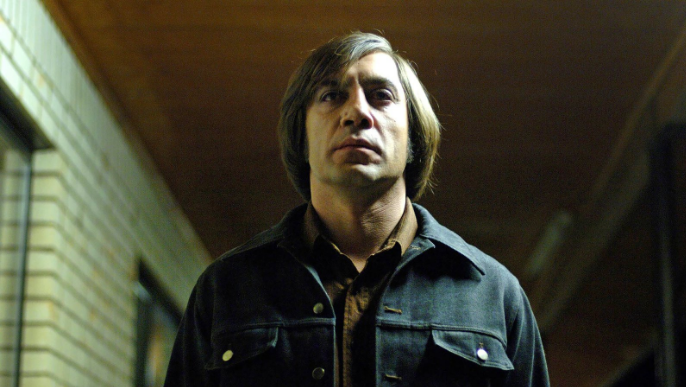Kind on film: Death is the hero in 'No Country for Old Men', but we have a better story
You don't know how much screen time you're going to get in this life. There's a temptation to assume that we're building up to a satisfying climax; that two thirds of the way through our life, we'll learn the lessons we need in order to overcome the enemies, demons and difficulties in our story – and secure that happy ending. We bank on walking off into the sunset – because we are the hero in our own story. Aren't we?

The Coen brother's No Country for Old Men (or How the West was Lost) smashes this ideal by having Josh Brolin's hero killed off-screen before the final act. We had expected the hero to win; to vanquish the reaper of death personified by Javier Bardem's Anton Chigurh. The film portrays a dystopian future (it starts, not ends, with a sunset), but it's not our future: it's that of the classic Western, where the moral lines were clearly drawn and the good guys wearing white hats always won.
We feel safe when we watch Shane or something from the John Wayne canon, because there's a reassuring moral structure. But the hero in No Country is death itself – a fearless gunslinger who defeats all comers. And the message for the viewer is that everyone will have to face this hero eventually. No matter how you lived, no matter what you risked, and regardless of whether you're ready to 'call it', Death wins the gunfight every single time. As Woody Harrelson's character says of Chigurh's figurative black-hatted hunter, 'You can't make a deal with him'.
There's a strong suggestion throughout the movie that human life is purely about self-preservation and survival, and that morality is simply a vehicle for prolonging that. No moral code can save you, though – it's Brolin's character's two most moral choices that see him hunted and then killed. So is everything therefore meaningless? The Coen brothers certainly believe Ecclesiasteswhen it says 'all is vanity and a chasing after the wind'; indeed, the film has no score save from the sound of the wind blowing whither it wishes. But maybe they didn't read as far as 1 Corinthians 15, because that changes everything.
Being good won't save you. Having a moral code won't save you. We can agree on that, because that's what the apostle Paul talks of in the New Testament as Law. There's a nice anti-moralism in No Country when Chigurh asks one of his victims, 'If the rule you followed brought you to this [death, like everyone else], of what use was the rule?'
Against this bleak landscape, the Christian story is one that shines a bright light on the tragic scene. It's the story of love personified coming to meet death – a foe that has easily dispatched every hero who faced it face-to-face in battle – and flipping beating it. The cross is the thing that killed Jesus, but it's the stop sign for everything that would seek to kill you. Death no longer has the stalking power it thought it had. It is not the main character in the story. It is lying off-screen, beaten, and not before time. So then, Death, where is your sting?
It's true that it rains on the righteous and unrighteous, and you don't know when production is going to shut down on the screening of your life – you don't get to 'call it'. But meaning isn't linked to longevity. Life isn't about self-preservation. It's about the fullness we get from knowing the ultimate white hat – the guy who laid down his life front and centre so that we don't have to worry about losing it all on a coin toss.











